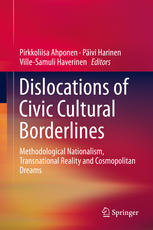

Most ebook files are in PDF format, so you can easily read them using various software such as Foxit Reader or directly on the Google Chrome browser.
Some ebook files are released by publishers in other formats such as .awz, .mobi, .epub, .fb2, etc. You may need to install specific software to read these formats on mobile/PC, such as Calibre.
Please read the tutorial at this link: https://ebookbell.com/faq
We offer FREE conversion to the popular formats you request; however, this may take some time. Therefore, right after payment, please email us, and we will try to provide the service as quickly as possible.
For some exceptional file formats or broken links (if any), please refrain from opening any disputes. Instead, email us first, and we will try to assist within a maximum of 6 hours.
EbookBell Team

4.3
68 reviewsThis book examines changes of citizenship in the light of dislocated habitations. It highlights the ways in which the membership in a local community is shifting away from national frameworks, and explores the dislocations brought about by transnational and cosmopolitan forms of belonging. Containing theoretical, methodological and political contributions, the volume takes part in the social political and cultural discussion around migration, transnationalism, multiculturalism, multiple citizenship and cosmopolitan civic activities. It presents dislocation as a covering concept and a metaphor for describing circumstances in which the conventional ways and frames of conducting social scientific analysis, social policies, or politics no longer suffice. The book shows how scientific and political projects, educational curricula and policy institutions still lean mainly on the logics of mono-cultural nation-states and citizenships, without recognizing the dislocated nature of contemporary citizenship and civil society. Offering solutions, the book proposes new ways of collecting data and conducting analyses, explains the new logics of citizenship and civic activities, and offers tools for developing civic and citizenship policies that consider the transnational reality of people’s everyday lives and life histories.